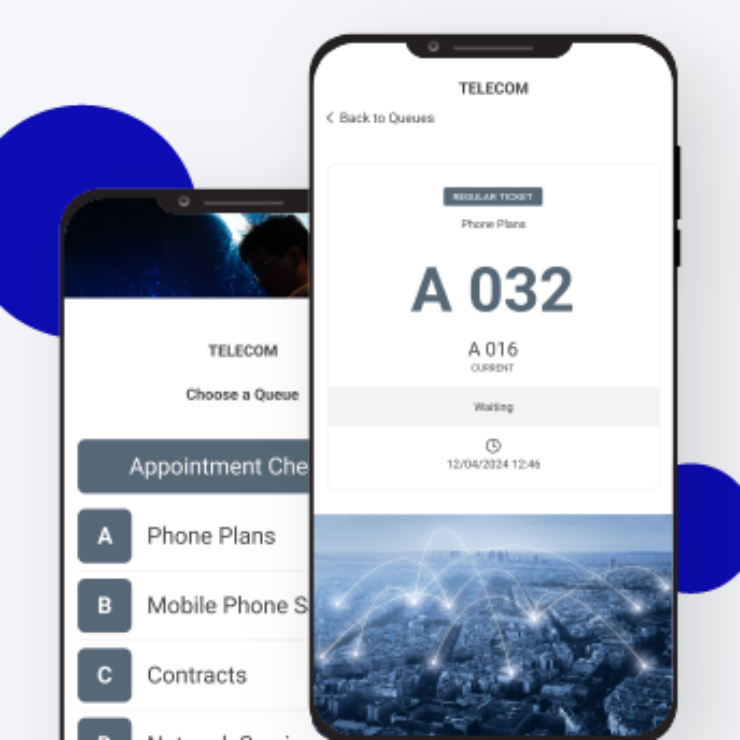
Reduce the waiting time by 30% with Q-Better’s Solutions
For businesses that deal with customer queues regularly, implementing a queue management system can provide many benefits other than reducing waiting times.
When all the services are well configured and based on the real statistics of each location, it is possible to reduce substantially the waiting time.
- Queue management improves the customer experience: By providing clear communication in order to create more organized and efficient services.
- Queue management helps organisations to operate more efficiently: A queue management system can help to optimize the use of resources such as staff and devices, streamline operations, and reduce the time and resources required to manage queues manually.
- There are different types of queue management systems: From basic systems that simply track wait times to more advanced systems that include features such as virtual queueing, appointment scheduling and data analytics.
- Queue management can be used in a variety of settings: While queue management is commonly used in settings such as retail stores, banks, and hospitals, it can be used in any setting where there is a need to manage crowds and minimize wait times.
What kind of businesses shall have a Queue Management System?

Retail stores
Organize customer queues at checkout counters, customer service desks, and other areas of the store where customers may need to wait in line.

Hospitals and Clinics
Manage patient queues in waiting rooms, registration areas, and other areas of the facility where patients may need to wait for services.

Banks
Organize customer queues at teller windows, customer service desks, and other areas where customers may need to wait.

Airports
Manage passenger queues at check-in counters, security checkpoints, and boarding gates.

Government offices
Organize queues for services such as visa applications, passport renewals, and other government services.

Entertainment
Organize queues for museums, rides, attractions, and many other entertainment services, to ensure that visitors have a positive experience.
What role do Queue Managements Systems play in Customer Experience?
QMS involve a range of technologies, from simple queueing to more advanced systems, that use virtual queueing, appointment scheduling and business statistics.
In terms of customer experience, queue management plays an important role in creating a positive and efficient customer experience. It offers organized and efficient services, allowing businesses to increase customer satisfaction and loyalty.
For example, a queue management system that uses virtual queueing allows customers to keep their place in line without physically waiting, reducing the perceived wait time, and allowing customers to use their time more efficiently. Also, appointment scheduling systems can help to reduce the need for customers to wait in line altogether, improving efficiency and reducing frustration.
An effective Queue Management System is the key component of creating a positive customer experience. By leveraging the latest technologies to optimize queue management, businesses can reduce wait times, improve efficiency, and enhance the complete customer experience.




